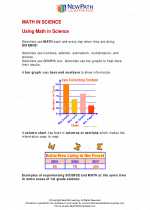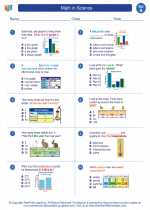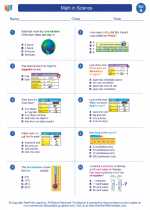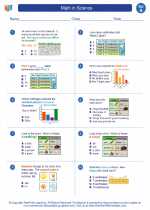Effect in Science
In science, the term "effect" refers to the result or outcome of a particular action or cause. It is an important concept that helps us understand the relationship between different variables and how one thing can lead to another.
Types of Effects
There are different types of effects that we can observe in science:
- Cause and Effect: This refers to the relationship between an action or event (cause) and the result it produces (effect). For example, when you push a toy car, it moves forward.
- Physical Effects: These are the changes or impacts that occur to an object or substance when a force is applied. For example, when you drop a ball, it falls to the ground due to the effect of gravity.
- Chemical Effects: These are the changes that occur in substances when they react with each other. For example, when you mix baking soda and vinegar, it produces a foaming effect due to a chemical reaction.
Studying Effects
To understand effects in science, it's important to ask questions, make observations, and conduct experiments. Here are some tips for studying effects:
- Ask Questions: Encourage curiosity by asking questions like "What happens if...?" or "Why did this happen?"
- Make Observations: Use your senses to carefully observe and describe the effects of different actions or events.
- Conduct Experiments: Set up simple experiments to test cause and effect relationships. For example, you can drop objects of different weights to observe the effect of gravity.
- Record Findings: Keep a science journal or log to record your observations and findings from experiments.
- Discuss Results: Talk about the effects you observed and share your findings with others to learn from their experiences as well.
Examples of Effects
Here are some everyday examples of effects that you can explore:
- The effect of watering plants on their growth.
- The effect of temperature on melting ice.
- The effect of blowing air on a paper sailboat's movement.
- The effect of mixing colors in painting.
[Effect] Related Worksheets and Study Guides:
.◂Science Worksheets and Study Guides First Grade. Math in Science
Study Guide Math in Science - 1st grade level
Math in Science - 1st grade level  Worksheet/Answer key
Worksheet/Answer key Math in Science - 1st grade level
Math in Science - 1st grade level  Worksheet/Answer key
Worksheet/Answer key Math in Science - 1st grade level
Math in Science - 1st grade level  Worksheet/Answer key
Worksheet/Answer key Math in Science - 1st grade level
Math in Science - 1st grade level 

 Worksheet/Answer key
Worksheet/Answer key
 Worksheet/Answer key
Worksheet/Answer key
 Worksheet/Answer key
Worksheet/Answer key

The resources above cover the following skills:
EARTH AND SPACE SCIENCE
Earth’s Place in the Universe
Observe seasonal patterns of sunrise and sunset to describe the relationship between the number of hours of daylight and the time of year (e.g., more hours of daylight during summer as compared to winter).